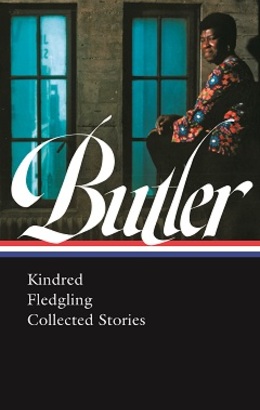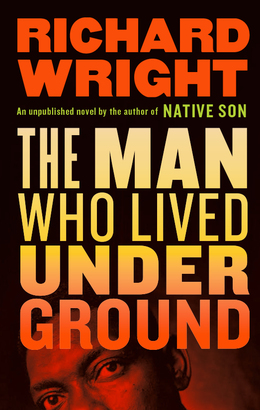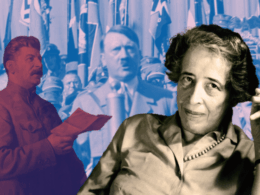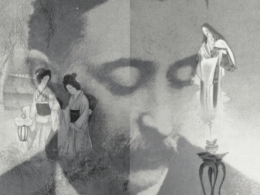Opening today, and extending through Saturday, April 2, the 16th National Black Writers Conference (NBWC) is a virtual public gathering of writers, readers, scholars, literary professionals, and students from both the United States and from a larger international community of artists and literature lovers. The four-day online event will include panel discussions, readings, and other events intended to broaden the public’s appreciation of Black literature and Black life.
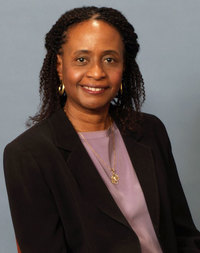
This year’s theme is “The Beautiful Struggle: Black Writers Lighting the Way.” The conference will honor four writers in a variety of disciplines: journalist Herb Boyd, literary critic and scholar Eddie S. Glaude, Jr., poet Tracy K. Smith, and novelist Jacqueline Woodson. Actress and musician Nana Camille Yarbrough will receive the Lifetime Achievement Award for the Literary and Performing Arts.
Dr. Brenda M. Greene, Founder and Executive Director of the Center for Black Literature at Medgar Evers College, CUNY, is the Director of the National Black Writers Conference. Via email, she shared some insights into her planning for this year’s programming, and reflected on some of the particular challenges the conference has had to overcome in the past few years.
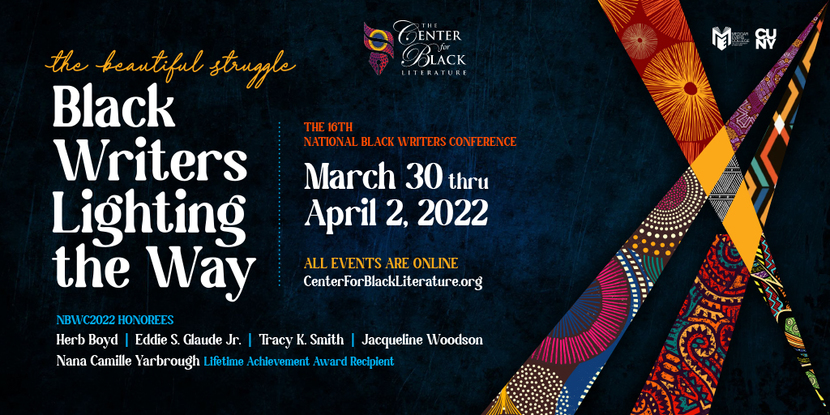
Library of America: The theme of the 2022 National Black Writers Conference is “The Beautiful Struggle: Black Writers Lighting the Way.” Can you discuss how you arrived at that theme, and what kinds of conversations you hope it will prompt among this year’s participants?
Dr. Brenda M. Greene: Four years ago, I wrote an essay after spending months in mourning, numbed by the acts and travesties that we witnessed during the campaign season and the subsequent news that #45 had been elected President. I focused on how the reactionary rhetoric, racism, and sexism emanating from the mouth of #45 enraged, angered, and incensed us to re-energize and galvanize as many people as we could to vote.
During that time of reflection, I was reminded of the dramatic rise in race riots and lynching during the post-Reconstruction era in our country. While the election results were coming in on the evening of November 5, 2016, my students were writing papers on Charles Chesnutt’s The Marrow of Tradition, a historical novel that presents a fictional account of the Wilmington 1898 riots and the impact of the “white backlash” after Reconstruction. My students informed me that the parallels between the racial and political climate of the country at the turn of the century and what they were witnessing in the current racial and political climate were remarkably similar and once again represented a pivotal moment in history.
The results of the 2016 election and the rise in racial incidents subsequent to the election were indeed surreal for me and my students. We witnessed how people in our nation responded to their perception of a loss in power, changing demographics, and the fact that a Black man had become President of one of the most powerful countries in the world. The fiery post-election rhetoric and racially targeted incidents represented “white backlash in the making.” President Barack Obama’s remarks in his farewell speech in January 2017 that “race still remains a potent and often divisive force in our society” foreshadowed the reign of racialized incidents that have continued to pervade our society.
My feelings of despair and anger over the obstacles negatively impacting Black and Brown people, and my emotions of disheartenment resurfaced during the pandemic. I thought about how we grappled with and found ways to cope with the pandemic and the plethora of disparities our community had to endure. We began to engage in acts that fed us spiritually, emotionally, and intellectually. We found the language for engaging in these acts in our books, our songs, our letters, our diaries, and our journals. Edwidge Danticat’s Create Dangerously: Immigrant Writers at Work is a book that inspired us to look for ways to survive. She recounts stories of artists who have risked their lives and who create despite the obstacles and horror that have driven them from their homelands. Her book highlighted artists’ roles in a country in crisis.
As I planned for the 16th National Black Writers Conference, these issues were uppermost in my mind. The conference theme, “The Beautiful Struggle, Black Writers Lighting the Way,” is a testament to the ways in which I believe Black writers have always used literature to document struggle and persistence and light the ways for overcoming obstacles and surviving in a racially constructed society. The theme is also taken from the title of hip-hop artist Talib Kweli’s album The Beautiful Struggle and from Ta-Nehisi Coates’s memoir The Beautiful Struggle. Talib Kweli is often labeled a “conscious rapper” for his socially relevant lyrics. His music provides political insight into our society and embraces the value of truth-telling; he questions systemic injustice and racism. Novelist and journalist Ta-Nehisi Coates’s memoir is a sensitively told portrayal of a Black boy’s coming of age in America. Ta-Nehisi describes what it was like to be raised by his father, a former Black Panther and cultural nationalist. Both Talib and Ta-Nehisi focus on the struggles of Black people and provide instances of Black resilience and persistence from varying perspectives.
Black writers in this country have a long history of overcoming obstacles and engaging in the struggle for the freedom to live as citizens whose civil and human rights are respected and honored. Through their liberation narratives, poetry, fiction, and essays, they have documented their experiences of what it means to live as a Black person in a society that is socially constructed by race, highlighted critical issues, acted as agents for social change, and given critical insight into the ways that Black people can persist and effect change.
At the 16th National Black Writers Conference, a stellar array of sixty writers, scholars, literary professionals, students and the general public will gather to participate in intellectually, stimulating literary programming over four days. The roundtable discussions, taken from the names of books and themes embraced by Black writers, provide a basis for discussions on critical themes. Speakers include honorees: Eddie Glaude Jr., Tracy K. Smith, Jacqueline Woodson, Herb Boyd and such scholars, public intellectuals, and literary writers as Peniel E. Joseph, Morgan Jerkins, Edwidge Danticat, Maaza Mengiste, Marlon James, Tananarive Due, Steven Barnes, Ibram X. Kendi, Maurice Carlos Ruffin, Monica Coleman, Kiese Laymon, Marita Golden, Brittney Cooper, Emily Bernard, Kevin Powell, Marc Lamont Hill, and Nicole Dennis-Benn. Scheduled conference panels, roundtables and conversations include:
• “Between the World & Me,” The Social Responsibility of the Black Writer
• “The Souls of Black Folk”: Telling Our Stories
• Afrofuturism: “Octavia Tried to Tell Us”
• “The Beautiful Struggle”: Black Writers Lighting the Way
• “Nobody Knows My Name”: Race Relations in Black Literature
• “Making a Way Out of No Way”: Healing the Community
• “From the Margin to the Center”: Gender, Sexuality, and Feminism in Black Literature
LOA: We’re excited to see that this year there’s a roundtable devoted to Octavia E. Butler (whose collected works have begun appearing in the Library of America series) and Afrofuturism. What is it about Butler that makes her more visible than ever, sixteen years after her passing?
Greene: I participated in a webinar, “Octavia Tried to Tell Us,” during the pandemic. The seminar focused on Octavia E. Butler and the belief system of “Earthseed” in Butler’s Parable of the Sower (1993) and Parable of the Talents (1998). Led by speculative fiction writer Tananarine Due and religious scholar/author Monica A. Coleman, the webinar explored the ways in which Butler was a visionary. It was a reminder that although we are not in control, we could use life changing moments and movements, such as a pandemic, environmental climate disasters, gender discrimination, systemic racism, a spiritual void, the rise of white supremacy, and the reality of a dystopian future to think more deeply about how we could make a difference in our lives and in the lives of others.
Butler provided us with cautionary tales and planted the seeds for “reseeing and reimagining” our worldview. Now, more than ever, we need ways to imagine how we move forward. As we search for a new “normalcy” in this world, we must embrace a vision that espouses the necessity of change and a shift in our world view. Butler saw the inevitability that change would come. Despite the despair, hopelessness, and struggles that many face on a daily basis, the protagonists in her dystopian novels suggest that there is hope. Butler reminds us that struggle is a necessity in life and that we have endured and withstood various types of struggle.
LOA: If we understand correctly, 2022 is the second time the National Black Writers Conference has been held online (the first was in the fall of 2020, postponed from March of that year). What have been some of the challenges in moving to the all-online format — and are there advantages to holding the conferences virtually rather than in person?
Greene: In view of the COVID-19 pandemic and the uncertainty of the ways in which people were able to ensure social distancing, the Center for Black Literature (CBL) rescheduled the 15th National Black Writers Conference (NBWC): “Activism, Identity, and Race: Playwrights and Screenwriters at the Crossroads,” which was originally scheduled for March, 2020, and held it virtually in November 2020. In March of 2021, CBL presented the 2021 National Black Writers Biennial Symposium, “They Cried I Am: The Life and Work of Paule Marshall and John A. Williams, Unsung Black Literary Voices.” The 16th National Black Writers Conference is the third time that the Conference will be presented virtually. Presenting these conferences and the symposium virtually allowed CBL to continue its mission of presenting events that highlight the invaluable contributions that Black literature plays in our society, that provide venues for Black writers to discuss issues, trends, and craft, and that communicate the importance of reading and writing as a way to understand the current racial climate and public health crisis in our nation.
Since its establishment in 2002, the Center for Black Literature has been highly revered for its stimulating literature-based public programs and for its impact in the literary field. It recognizes the importance of hosting in-person programs that allow attendees and participants to be engaged with one another in a socialized manner that only person-to-person interaction provides. The presentation of its virtual programs during the past two years highlighted and brought attention to the need for CBL to continue creating a space for hybrid presentations. We had hoped to offer the 16th NBWC in person but as new COVID variants developed and as the public and writers continued to be wary and cautious about in-person events, CBL faced the reality that we were in a new norm.
A major advantage to hosting the conferences virtually was that we were able to expand the breadth of writers who could participate nationally and internationally. The conversations emanating from the roundtables and panels were more focused since attendees had to post their questions online. Additionally, the online chat enabled more participants to comment in real-time on points and issues raised in the discussions and panels. Thus, more attendees had opportunities to engage with speakers on the panels and roundtables.
The online conference also ensured that we had recordings of all of the programming for the Conference. Since attendees paid a small donation for the Conference, we chose to post only some of the recordings of the roundtables and panels after the Conference. Previously, attendees did not have access to all of the recordings for in-person events,
Since we no longer had to cover the lodging and travel of writers, we diverted the funds to developing a new website, hiring a virtual events manager, expanding our marketing and public relations outreach, and creating a comprehensive social media presence on Facebook, Instagram, and Twitter. We have seen an increase in the number of persons who register for our literary programs.
A disadvantage of hosting the Conference online is that we are not able to have and capture the festival ambiance (vendors and “specialty booths”) of the Conference. Our conferences are known for providing ways for writers, literary professionals and the general public to network, explore and buy books at the Conference bookstore, support independent Black writers, and purchase cultural artifacts, clothing, jewelry, art, and more from Black vendors.
I expect that as we move forward, we will draw from the best aspects of the virtual and in-person formats.
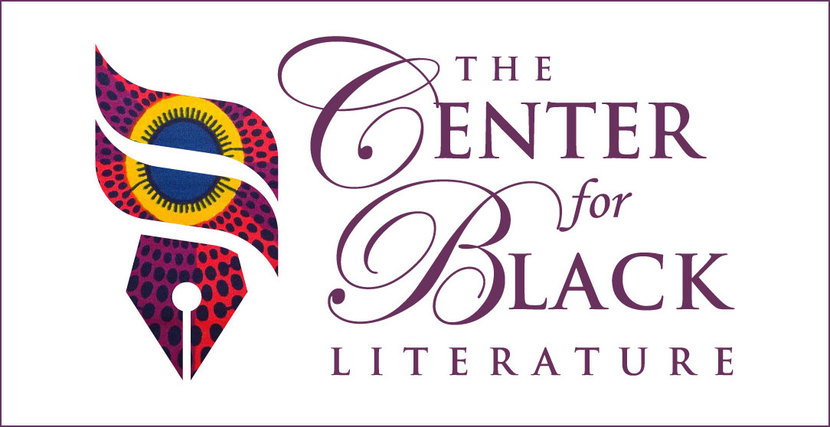
LOA: Later this year the Center for Black Literature at Medgar Evers College will commemorate the twentieth anniversary of its founding. First off, congratulations! We’re curious to know how, from your perspective, the literary landscape has changed in the two decades the Center has been here. Is the public more receptive to the work you do? How have the social upheavals of the past several years affected your approach to your work?
Greene: For nearly twenty years, the public and academic programs of the Center have been highly revered and have had a dynamic impact in the literary field. The author readings and book signings, journals, symposia, conferences, panel discussions, and writing workshops—and the Center’s intellectual and accessible approach to programming—form an integrative approach that sets CBL apart from others. CBL’s body of work is known for the way in which it ensures that Black literary scholarship and conversations are valued and sustained. CBL programs are critical and essential as we collectively help our nation to understand the value of using literature and writing to sustain ourselves and to provide avenues for the public and youth to channel their inspirations, frustrations, desires, and fears. To achieve its goals, CBL aligns with partners and supporters who understand the significance of the Center’s mission and the role its programs play, as each literary event highlights the importance that literature has played in shaping our history and influencing contemporary culture.
Over the last twenty years, we have witnessed what one might call a “renaissance” in Black literature. The Black Lives Matter Movement resulting from the murder of Trayvon Martin and gaining momentum by the murders of Armaud Arbery, Breonna Taylor, and George Floyd, among others, reflects a young people’s struggle and stands on the shoulders of the legacy left by the Black Arts, Black Power, feminist, and hip hop movements. In response to the manifestations of white supremacy, white fear and guilt, Black writers are continuing to create fiction, nonfiction, poetry, dramatic plays, screenplays, and essays that address systemic racism and represent the complexity of Black lives. Literary, historical and cultural libraries and organizations such as Library of America, the New York Society Library, the Schomburg Center for Research in Black Culture, the Center for Fiction, and PEN America are positioning the books of Black writers from the African diaspora and hosting readings and forums on Black writers. The Center for Black Literature, through its National Black Writers Conferences and Symposia, its Killens Reading Series, its Killens Review of Arts and Letters, its Writers on Writing Interviews, and its monthly book club has been a leader in spearheading the positioning of Black writers and the literature created by Black writers.
Evidence of the impact of this renaissance is apparent in the number of books by Black authors on the New York Times best sellers list in recent years. Black American authors dramatically increased and the most significant increase was in nonfiction books—which includes writers such as Michelle Alexander, Ijeoma Oluo, Isabel Wilkerson, Nicole Hannah-Jones, Michael Eric Dyson, and Bryan Stevenson. Dr. Ibram X. Kendi, who also appeared at No. 3 on the list with How to Be an Antiracist and at No. 6 with Stamped from the Beginning, said, in a Twitter chat with Reuters, “The demonstrations have literally rocked every part of the United States, from small towns to big cities.” Author Reni Eddo-Lodge, along with Bernadine Evaristo, became the first Black British woman to top the UK’s fiction and nonfiction paperback charts. She asked readers buying her book in the wake of Black Lives Matter protests to match the price they paid with a donation to the Minnesota Freedom Fund, a civil rights advocacy group.
There has also been an increase in the presence of Black screenwriters and playwrights in the writing rooms, on stage, and in Hollywood. In July 2021, as fans returned to Broadway from its year and a half-long COVID hiatus, all seven of the new plays scheduled for the end of the year were by Black writers. Like the response seen in the publishing and book buying industry, the gatekeepers of Broadway opened their doors to produce more plays by Black playwrights. Black writers, producers, and directors have been intentional and deliberative about claiming their spaces on and off Broadway. They have built on the legacy of those who have claimed that space by creating their own theater and producing their own films. They are not allowing themselves to be defined by the white gaze and are maintaining their integrity as they dismantle the barriers of racism and challenge the gatekeepers in theater and film.
A look at the trends in Black literature throughout the African diaspora also reveals expanded genres and stories that have changed the narrative of the Black experience throughout the African diaspora and introduced and recovered unpublished books. For example, there is a significant increase in Black speculative fiction; Carnegie Hall recently held a citywide festival on Afrofuturism. There are more writers from the continent of Africa being published and more forums for African writers to present their stories. These include writers such as Ben Okri, Yaa Gyasi, Aminatta Forna, Imbolu Mbue, and Uwem Akpan. Manuscripts such as Killens’s unpublished novel The Minister Primarily, with a foreword by Ishmael Reed, was published in 2021, and Library of America also published Richard Wright’s The Man Who Lived Underground, with an afterword by Malcolm Wright (Richard Wright’s grandson), in 2021. (Wright’s novel had previously been published as a much-shorter short story.) Barracoon: The Story of the Last “Black Cargo” by Zora Neale Hurston, with an introduction by Deborah G. Plan and a foreword by Alice Walker, was recovered and published in 2020. The experiences of Blacks which have been silenced and reimagined have been added to the body of invisible voices in Black literature. Colson Whitehead’s The Nickel Boys and The Underground Railroad, Ta-Nehisi Coates’s The Water Dancer, and James McBride’s novels, Song Yet Sung, Miracle at St Anna, and The Good Lord Bird document and re-envision the struggles of Black Americans in this country. Honorée Fanonne Jeffers gave readers an expanded view of the life and times of Phillis Wheatley in her book of poems, The Age of Phillis. Jeffers also paid tribute to W.E.B. Du Bois in her epic multi-generational novel The Love Songs of W.E.B. Du Bois. Jocelyn Nicole Johnson explored the impact of race relations and the legacies of slavery in her short story collection My Monticello. These books represent a small slice of the trends in Black literature over the last twenty years.
The Center’s 20th Anniversary Jubilee will mark a pivotal milestone in its history and will be celebrated throughout 2022. The social upheavals of the last few years have underscored the important work and value of the Center for Black Literature. This work will be highlighted through a culminating event which will feature CBL 20th Anniversary Honorees, readings and reflections from NBWC Honorees and distinguished writers, readings from recipients of the high school and college student National Writing Contest, and performances from the CBL literary and cultural community.
